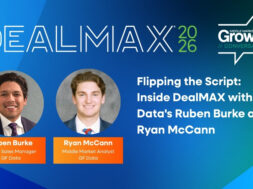Middle-Market Public Policy Roundup
Lawmakers debated leveraged lending risks at a hearing earlier this week, and a top White House economic advisor has stepped down.

Leveraged lending continues to take center stage as members of Congress debated the systemic risk posed by corporate debt and loan practices at a hearing held this week. Disagreement predictably occurred along partisan lines as Democrats raised the alarm over lack of information gathering and risk exposure, comparing it to conditions before the 2008 subprime mortgage crisis. Republicans countered by claiming the proliferation of current debt types doesn’t pose the same risk as those that triggered the financial crisis.
Meanwhile, one of the White House’s top economic advisors and architect of the tax reform bill has stepped down, leaving a key post vacant.
House Subcommittee Explores Leveraged Lending and Systemic Risk
A House hearing followed on the heels of growing concern surrounding rising levels of corporate debt coupled with an increase in so-called covenant-lite loans.
On Tuesday, the House Financial Services Subcommittee on Consumer Protection and Financial Institutions held a hearing entitled “Emerging Threats to Stability: Considering the Systemic Risk of Leveraged Lending.” The hearing continued the exploratory approach that regulators and policymakers have taken thus far in response to leveraged lending trends.
Key themes from the hearing revolved around the similarities and differences between the current collateralized loan obligation market and the factors that precipitated the 2008 subprime mortgage crisis. The hearing also highlighted lack of regulator confidence in understanding the nature of leveraged lending risk to the financial system, general risk compared to systemic risk, the challenges highly indebted companies will face in a downturn, and the need for increased transparency and oversight in the leveraged lending market.
Subcommittee Chairman Gregory Meeks, D-N.Y., expressed concern that basic data about leveraged lending is not known by financial regulators, which is necessary to be able to assess whether there are warning signs of systemic risk accurately. According to Meeks, regulators need to identify the risk, quantify it, and map how it feeds back into the system.
Rep. Andy Barr, R-Ky., defended Collateralized Loan Obligations (CLOs)—how leveraged loans are usually bundled and sold—and rejected their systemic risk.
Barr accused many on the committee of conflating CLOs with other asset classes, listing several attributes of CLOs, including their active management and “perfect alignment of interests” to demonstrate how they are different than Collateralized Debt Obligations (CDOs) and serve as a market stabilizer. He emphasized that overregulated CLOs would be an impediment to financial stability and that leveraged loans are a relatively small slice of the U.S. economy from a systemic risk standpoint.
During her allotted time, Rep. Alexandria Ocasio-Cortez, D-N.Y., focused on the impact the Toys R Us and Sears bankruptcies had on workers, alluding to a leveraged lending “scheme.” She also made the point that teachers and their pension funds are more on the hook for losses when things go wrong, rather than the banks that originate the loans.
Gregory Nini, a professor at Drexel University’s LeBow College of Business and one of four witnesses, consistently made a case for why CLOs don’t pose a systemic risk. He emphasized that while corporate defaults would increase in an economic downturn and there would be losses, those losses would not be systemic. He also pointed out that large banks arrange most leveraged loans, so they are unlikely to fully escape oversight of regulators, at least at the origination stage.
Ranking Member Blaine Luetkemeyer, R-Mo., ended the hearing by making the point that all loans carry risk, but the leveraged lending market lacks the worrisome concentration that existed with mortgages in 2008. As far as next steps, he said Congress needs to provide more oversight—not legislation—in this area.
Leveraged loans play a critical role in growing middle market businesses that create jobs and increase tax revenue. As a result, ACG’s public policy staff recognizes the imperative that policymakers have a clear understanding of how leveraged lending works in the marketplace as they continue to explore this issue. Public policy staff attended the hearing and will continue to monitor activity in this space to ensure that the voice of the middle market is part of the policy dialogue.
If you are an ACG member who would like to provide insights into leveraged lending in the middle market to help inform our advocacy efforts, please email policy@acg.org.
White House Economist to Leave Post
Kevin Hassett, the White House Council of Economic Advisers Chairman, said this week that he would be resigning from his post.
Hassett was a key administration official in the 2017 Tax Cuts and Jobs Act, as well as in shaping the administration’s outlook on issues such as the opportunity zones program. Hassett, a proponent of free-trade, has denied that his departure has anything to do with President Trump’s new push to implement tariffs on Mexico as an attempt to reduce illegal immigration.
Before his current post, Hassett was the State Farm James Q. Wilson Char in American Politics and Culture, as well as the Director of Research for Domestic Policy at the American Enterprise Institute. He has not yet stated what his post-White House plans are.
Are you an ACG member who enjoys reading the public policy roundup? Join our Public Policy Interest Group to receive even more in-depth coverage of federal policy activity impacting the middle market, as well as opportunities to help shape ACG’s advocacy efforts.

Maria Wolvin is ACG Global’s vice president and senior counsel, public policy.

Ben Marsico is ACG Global’s manager of legislative and regulatory affairs.


